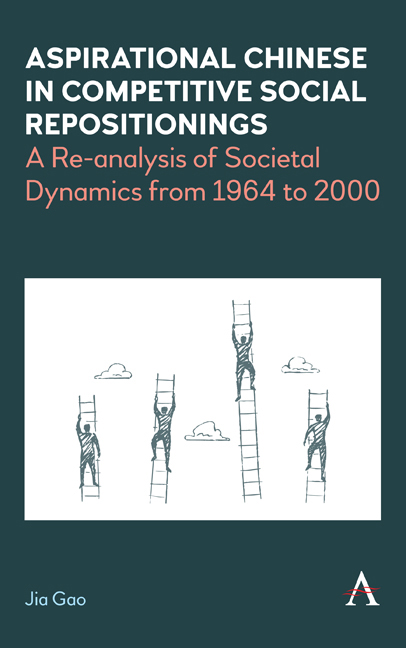 Aspirational Chinese in Competitive Social Repositionings
Aspirational Chinese in Competitive Social Repositionings Book contents
- Frontmatter
- Contents
- List of Abbreviations
- List of Figures
- List of Tables
- Preface and Acknowledgements
- One The Absence of Everyday Chinese in the Dichotomous Paradigm
- Two Rebranding the Communist Heir Narrative and the Cultural Revolution
- Three Tearing the Utopian Veil Down By the Sent-Down Youth
- Four Crying Out for Changes in the Second Half of the 1970s
- Five Battling for the Advantages Under the Dengist Political Alliances
- Six Climbing Different Social Ladders From the Mid-1980s
- Seven Filling in the Post-1989 Vacuum Left By Educated Liberals
- Eight Seizing Chances to Be Entrepreneurial in Post-1992 China
- Nine Towards a Theory of Competitive Social Repositioning
- References
- Index
Preface and Acknowledgements
Published online by Cambridge University Press: 28 February 2024
- Frontmatter
- Contents
- List of Abbreviations
- List of Figures
- List of Tables
- Preface and Acknowledgements
- One The Absence of Everyday Chinese in the Dichotomous Paradigm
- Two Rebranding the Communist Heir Narrative and the Cultural Revolution
- Three Tearing the Utopian Veil Down By the Sent-Down Youth
- Four Crying Out for Changes in the Second Half of the 1970s
- Five Battling for the Advantages Under the Dengist Political Alliances
- Six Climbing Different Social Ladders From the Mid-1980s
- Seven Filling in the Post-1989 Vacuum Left By Educated Liberals
- Eight Seizing Chances to Be Entrepreneurial in Post-1992 China
- Nine Towards a Theory of Competitive Social Repositioning
- References
- Index
Summary
In the past four or so decades, a significant amount of research has been undertaken into the rapid and constant social changes happening in China and the dynamics behind this process, resulting in a large body of literature on a wide range of issues and aspects of China's recent transformations. However, most such literature has focused either on political, ideological and policy problems at the macro level or on the different forms of spontaneous resistance and protest at the micro level, providing various perspectives for observing and interpreting what has happened in China. Less studied is the manner in which the majority of everyday Chinese people have reacted to and influenced changes in society over a long period of time. This gap limits our understanding of Chinese society, its societal dynamics and its changing trends to the perspectives of elites and their rivals. Drawing upon a novel perspective of competitive social repositioning, this book seeks to fill this analytical gap by re-analysing the societal dynamics driving social changes in China from 1964, when Mao publicly set out his successor selection criteria, to 2000, when Jiang Zemin promoted his Three-Represents Theory to modify the Chinese Communist Party's (CCP) long-held ideology and practices.
The role of everyday Chinese people in making and influencing social reactions and actions in China is a puzzle that has fascinated me since my youth. I was forced a few years earlier than many teenagers to be a responsible family member and to pay attention to what was taking place in inner Beijing during the early weeks of the Cultural Revolution. A few weeks into the Mao-incited anarchy, a shooting incident that saw bullets fired from a neighbouring school through our house was a sharp awakening, bringing my childhood to an early and abrupt end. In contemporary Chinese political discourse, there is a famous saying that the cannon blast of the October Revolution of Russia delivered Marxism–Leninism to China. In my case, as I have occasionally joked, the shots striking our house shocked me out of my preteen mind. My family was soon relocated to a then-remote, and seemingly safe, university campus in the western outskirts of Beijing.
That was a ridiculous time full of strange things, very different from what I was taught at both home and school.
- Type
- Chapter
- Information
- Aspirational Chinese in Competitive Social RepositioningsA Re-Analysis of Societal Dynamics from 1964 to 2000, pp. xv - xxPublisher: Anthem PressPrint publication year: 2023


